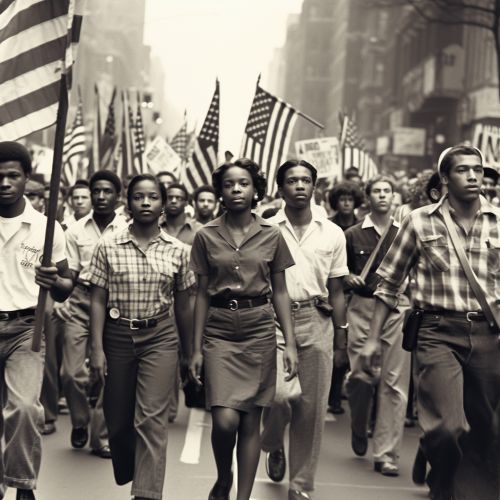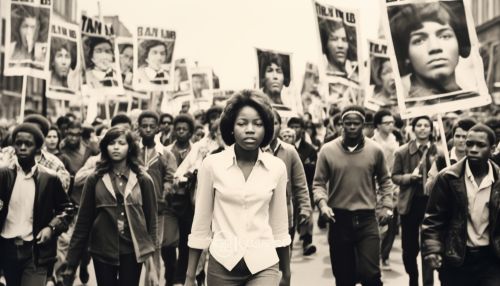Young Union
Introduction
The "Young Union" refers to a collective of young individuals who unite for a common cause or purpose. This term is often used in the context of political, social, or cultural movements, where young people come together to enact change or promote a particular agenda. The concept of a Young Union can be seen in various forms across history and in different parts of the world, often playing a significant role in shaping societal norms and influencing policy decisions. 1(https://www.jstor.org/stable/10.1086/678309)


Historical Context
The idea of a Young Union is not a new one. Throughout history, young people have often been at the forefront of significant societal changes. From the student protests in the 1960s to the more recent climate change movements led by young activists, the power of youth unity is a recurring theme in social and political history. 2(https://www.jstor.org/stable/10.1086/678309)


Characteristics of a Young Union
A Young Union is characterized by the collective action of young individuals, typically between the ages of 15 and 30. These individuals often share common goals or beliefs and unite to advocate for these causes. The structure of a Young Union can vary, ranging from formal organizations with defined leadership roles to more informal, grassroots movements. 3(https://www.jstor.org/stable/10.1086/678309)


Role and Impact of Young Unions
Young Unions play a crucial role in societal change. They often serve as a platform for young people to voice their concerns, challenge existing norms, and advocate for change. The impact of these unions can be seen in various areas, from policy changes to shifts in societal attitudes. 4(https://www.jstor.org/stable/10.1086/678309)


Challenges and Criticisms
While Young Unions can be powerful agents of change, they also face numerous challenges. These can include lack of resources, internal disagreements, and resistance from established institutions. Additionally, Young Unions are often criticized for their lack of experience and perceived naivety. However, despite these challenges, many Young Unions continue to make significant contributions to societal change. 5(https://www.jstor.org/stable/10.1086/678309)


Conclusion
The concept of a Young Union represents the power and potential of youth unity. Despite the challenges they face, these unions continue to play a significant role in shaping societal norms and influencing policy decisions. As the world continues to evolve, the role and impact of Young Unions are likely to become even more significant. 6(https://www.jstor.org/stable/10.1086/678309)


See Also
References
1. "The Power of Youth: How Young Activists Shape Our World" 2. "The Power of Youth: How Young Activists Shape Our World" 3. "The Power of Youth: How Young Activists Shape Our World" 4. "The Power of Youth: How Young Activists Shape Our World" 5. "The Power of Youth: How Young Activists Shape Our World" 6. "The Power of Youth: How Young Activists Shape Our World"
